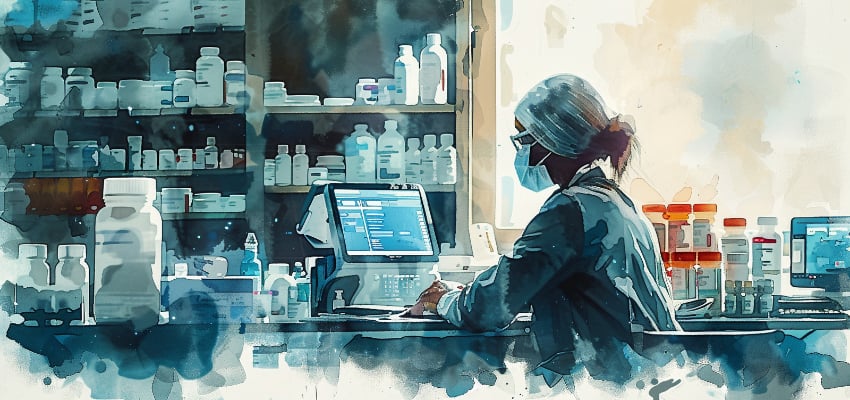Editor’s Note: The cyberattack on UnitedHealth Group’s subsidiary, Change Healthcare, by the ransomware group BlackCat marks a critical juncture in the ongoing struggle between advancing healthcare services and ensuring cybersecurity. This incident illuminates the vulnerabilities within our healthcare infrastructure, underscored by the staggering $22 million ransom and the extraction of six terabytes of data. The disruption in healthcare claims processing and payments has far-reaching consequences, affecting pharmacies, hospitals, and ultimately patients’ access to necessary care. As this crisis unfolds, it highlights the essential balance required between technological advancements in healthcare and the imperative need for robust cybersecurity measures. This article delves into the complex ramifications of the attack, offering valuable insights for professionals in cybersecurity, information governance, and eDiscovery, emphasizing the urgent need for a concerted effort to enhance digital safeguards in the healthcare sector.
Content Assessment: Cyberattack on UnitedHealth Group Subsidiary Exposes Fragile Balance Between Healthcare and Cybersecurity
Information - 94%
Insight - 95%
Relevance - 92%
Objectivity - 94%
Authority - 93%
94%
Excellent
A short percentage-based assessment of the qualitative benefit expressed as a percentage of positive reception of the recent article from ComplexDiscovery OÜ titled, "Cyberattack on UnitedHealth Group Subsidiary Exposes Fragile Balance Between Healthcare and Cybersecurity."
Industry News – Cybersecurity Beat
Cyberattack on UnitedHealth Group Subsidiary Exposes Fragile Balance Between Healthcare and Cybersecurity
ComplexDiscovery Staff
The recent cyberattack initiated by the ransomware group BlackCat on UnitedHealth Group’s subsidiary Change Healthcare has created a multifaceted crisis, cutting across the technology, finance, healthcare, and cybersecurity sectors in the United States. The impact of the attack, which occurred on Feb. 21, has been staggering, with disruptions in the processing of claims and prior authorizations for patient visits and prescriptions across a large number of American health systems for two weeks. While Change Healthcare struggles to recover, the broader implications of such cybersecurity breaches on the health systems’ operational flow, patients’ access to critical services, and the financial health of the industry are too significant to ignore.
Equipped with sophisticated multiple extortion techniques, BlackCat, backed by Russia and also known as Noberus, ALPHV, and Blackcat, successfully extracted six terabytes of data and secured $22 million in bitcoin. This breach serves as a stark reminder of the digital dependency and vulnerability within our healthcare infrastructure. The current hiatus at Change Healthcare, one of America’s preeminent health care IT companies, has affected pharmacies and hospitals, significantly hindering their ability to process healthcare claims and payments. The ripple effect was immediately noticeable, with entities like CVS reporting that 25% of its claims go through Change, highlighting the company’s integral role in the healthcare ecosystem.
This incident urges a reevaluation of cybersecurity readiness within the health sector. Despite regulations aimed at protecting patient information, the inherent interoperability that recent tech platforms achieve also paves the way for increased risk of such attacks. The Justice Department acknowledges Blackcat’s proficiency in leveraging double extortion in their attacks, challenging both the digital safeguards and data privacy meant to shield patients and the healthcare system at large.
The response to the breach has seen the mobilization of resources from various quarters. The US Health and Human Services Department (HHS) is extending aid to those affected, providing alternatives to the compromised systems. At the same time, companies and agencies like the FBI and the American Hospital Association are advocating for better protections and contingency planning for future digital onslaughts. As the industry navigates this turmoil, UnitedHealth Group, now facing significant market valuation losses post-attack, alongside other stakeholders, underscores the dire need for cybersecurity talent in their ranks to fend off future threats and sustain the integrity of healthcare services.
Within this intricate web of events, the human element at the core cannot be overlooked. Patients, pharmacists, and healthcare providers—all components of the healthcare delivery system—are grappling with the immediate adverse effects of this digital hostage situation. On a micro level and in light of this development, individual entities and professionals, such as CEO John Couris of Tampa General Hospital and Brett Callow of Emsisoft, are highlighting their firsthand experiences with cyber threats and urging necessary adjustments to and considerations for industry security postures.
As the situation evolves, key players in the industry are navigating uncharted waters, trying to mitigate the impacts and establish robust lines of defense and communication. Dr. Amar Desai, CEO of Optum Health, reveals a collaborative stance among affected companies, emphasizing the call for unity and swift response in the face of cybersecurity challenges.
The cyberattack on Change Healthcare not only represents a critical breakdown in the transactional capabilities of a major health IT firm but also exposes the precarious balance between digital progress and security in the realm of public health.
News Sources
- Blackcat claims responsibility for cyberattack at UnitedHealth
- UnitedHealth’s cyberattack should be a ‘wake-up call’ for healthcare
- Report: Cyberattack at UnitedHealth Group launched by Blackcat ransomware group
- ‘Blackcat’ ransomware gang behind Change Healthcare cyberattack
- UnitedHealth Group, Change Healthcare paid $22M ransom for data, hacker post claims
Assisted by GAI and LLM Technologies
Additional Reading
- The Cyber Siege: China’s Expanding Digital Dominance and US Response
- EU Cybersecurity Investment Trends: Insights from the NIS Investments Report 2023
Source: ComplexDiscovery OÜ



























